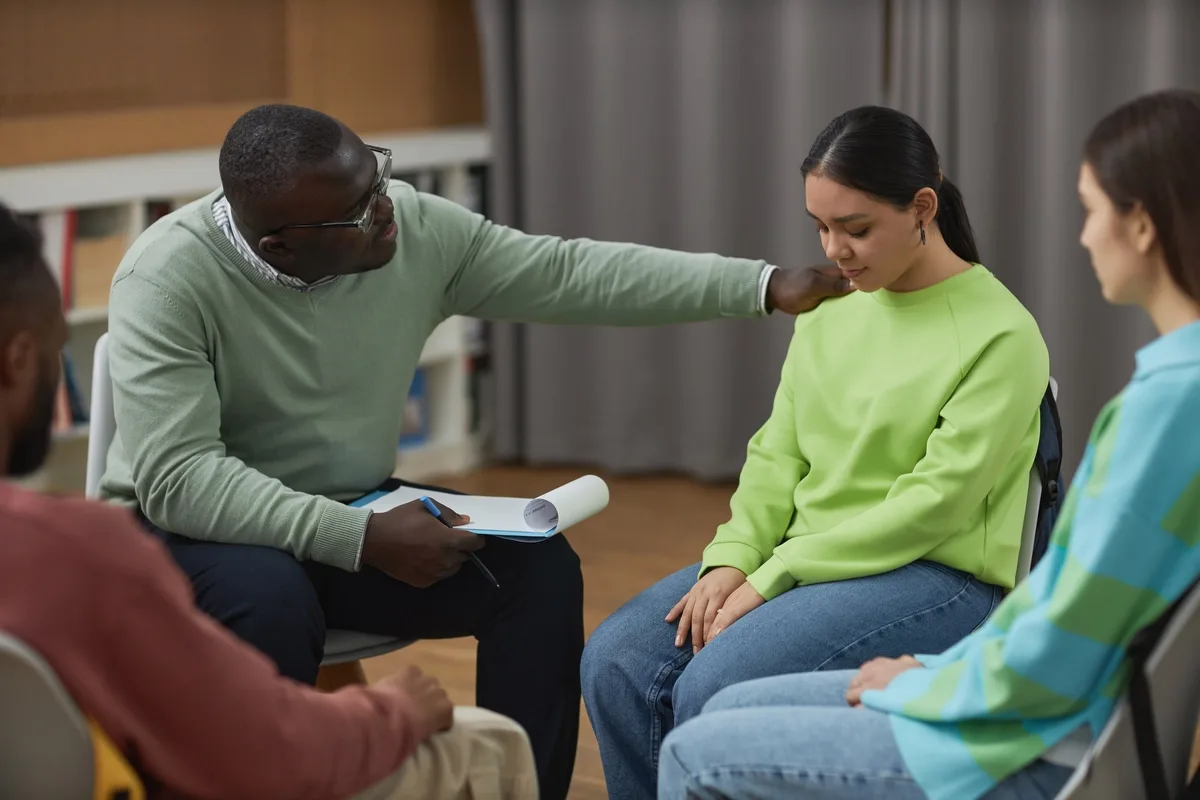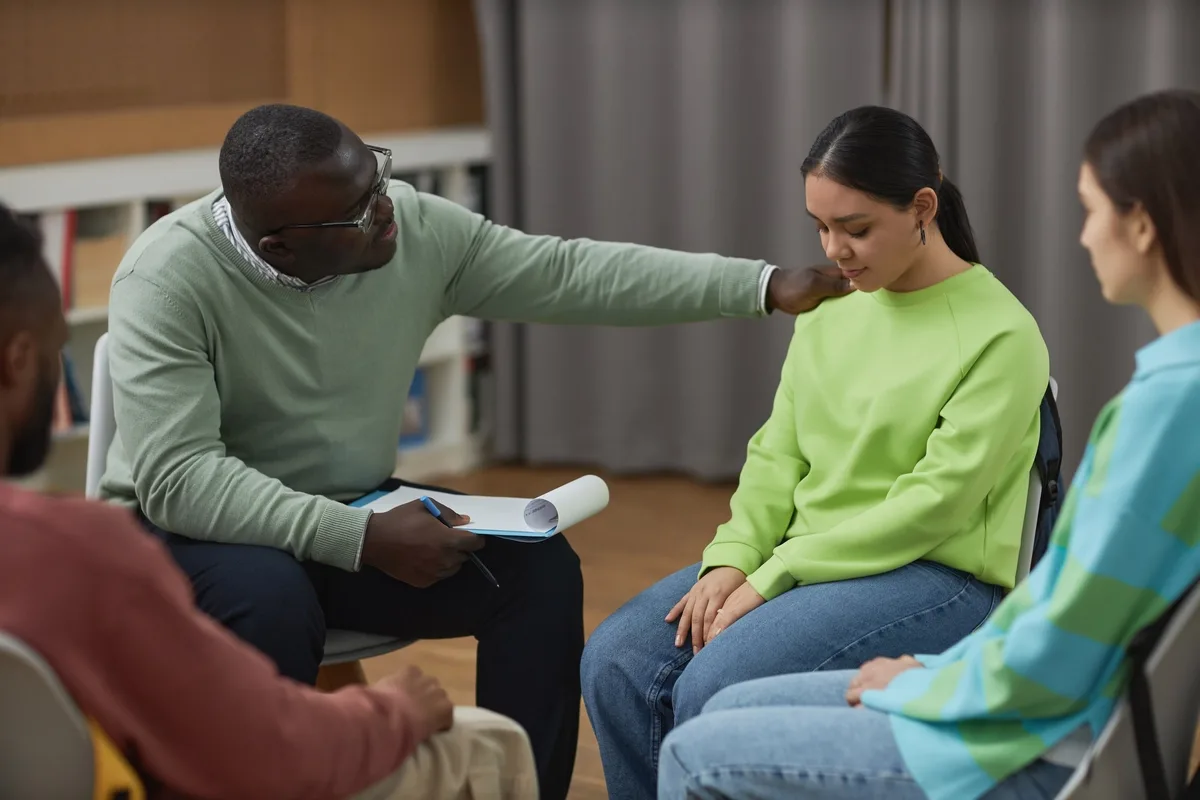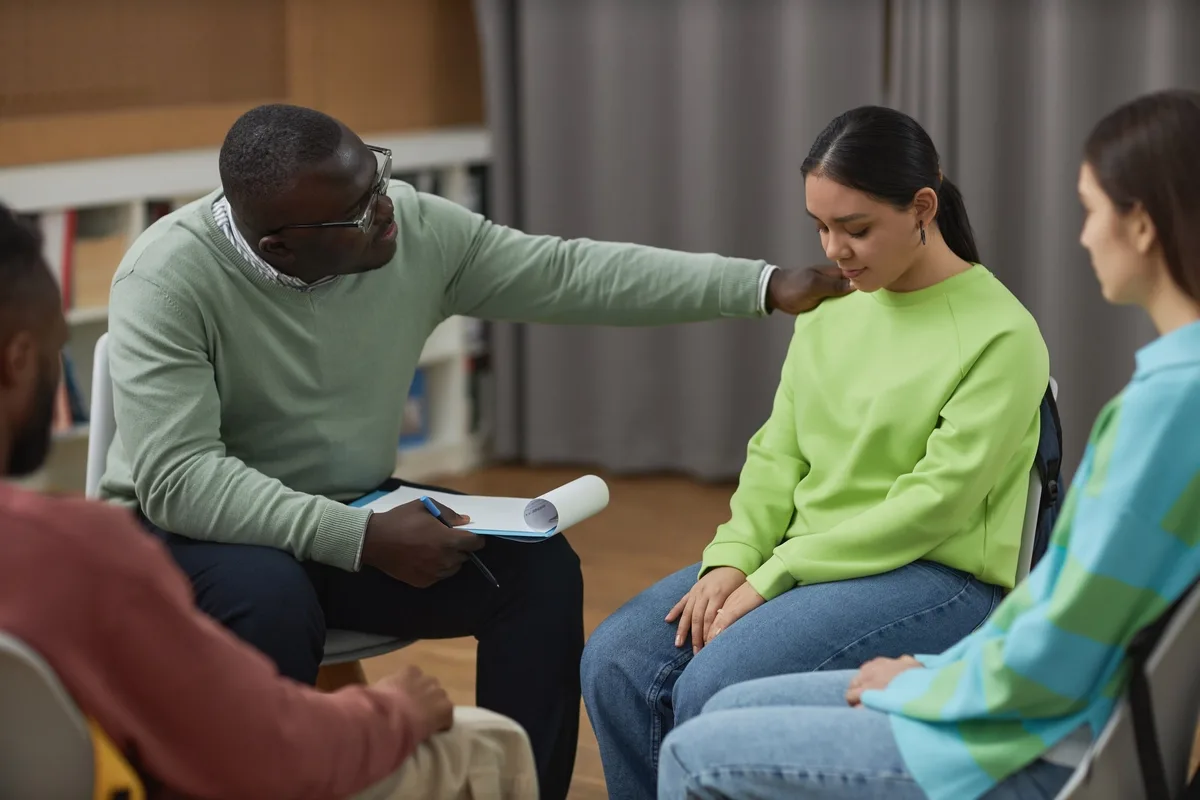24/7 Helpline:
(866) 899-221924/7 Helpline:
(866) 899-2219
Learn more about Aftercare Support centers in Gardner

Other Insurance Options

GEHA

Private insurance

Aetna

Premera

Health Choice

Multiplan

Absolute Total Care

Access to Recovery (ATR) Voucher

UMR

Holman Group

Optima

WellPoint

Anthem

Carleon

Health Net

Excellus

AllWell

Molina Healthcare

EmblemHealth

Cigna

Edgefield Recovery Center
Edgefield Recovery Center is a drug and alcohol rehab center located in Cheneyville, LA. They provid...

Healing Springs Ranch
Located in Tioga, Texas, Healing Springs Ranch is a center for treating addiction and mental health ...

















Dellwood Recovery Center
Dellwood Recovery Center is a private rehab located in Mora, Minnesota. Dellwood Recovery Center spe...

Serenity Manor
Serenity Manor is a private rehab located in Mora, Minnesota. Serenity Manor specializes in the trea...

New Mexico Behavioral Health
New Mexico Behavioral Health is a public rehab located in Mora, New Mexico. New Mexico Behavioral He...

















































































































































































































































































































































































































